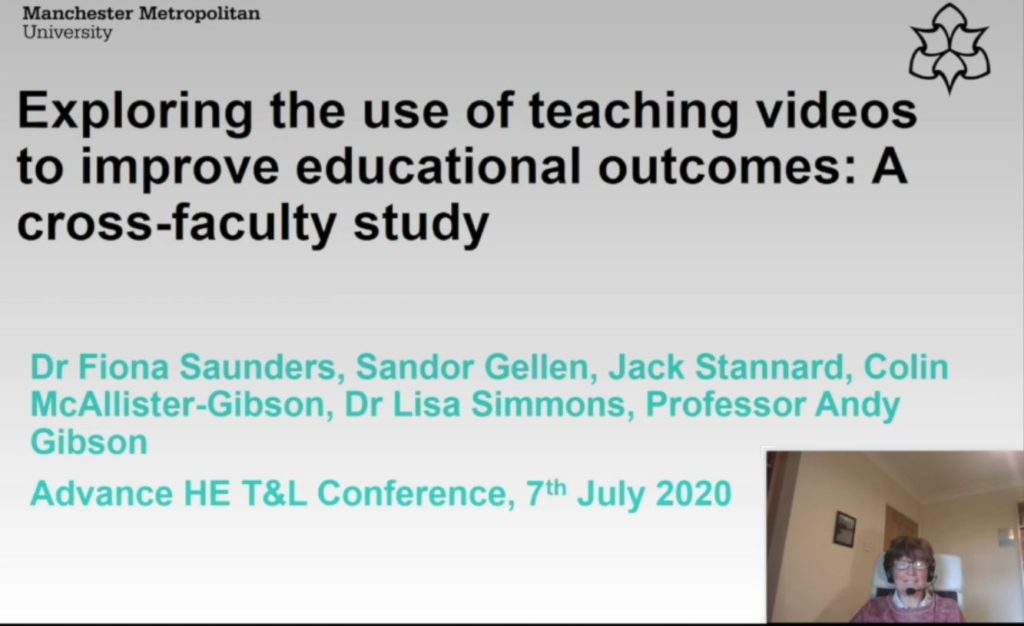This blog post and associated video presentation explores and evidences the use of teaching videos creatively yet consistently across a large Faculty in a post 92 Institution to both enhance the student experience and help improve educational outcomes. Our project is centred on a major initiative in the Faculty of Science and Engineering at Manchester Metropolitan University running since 2017, which has led to the creation of over 2000 videos and screencasts to support students across the full range of STEM disciplines. Student feedback on the videos via comments to staff, or through NSS, and internal surveys has been consistently positive. Students say that they like the videos as they enable them to better prepare for examinations, clarify coursework requirements and familiarise themselves more quickly with “hard to understand” or threshold concepts.
Click here and the mp4 version of the presentation will download

There is an emerging consensus across the Faculty that the widespread provision of videos has made a significant contribution to recent improvements in student performance and in retention across all levels of UG study. What is innovative about this work is that we do not rely on anecdotal evidence of the impact of teaching videos on student performance, but that we have been able to measure it in a quantitative study of 1248 first year and second year undergraduates out of a Faculty of 6000 students. Whilst controlling for demographic factors, entry qualifications and level of engagement with the institutional Virtual Learning Environment (VLE), regression analysis revealed that viewing more videos positively correlated with final unit mark. Although effect size was small, video view was the only significant contributor to improved unit performance besides entry qualification and ethnicity. When repeating the analysis to measure the probability of passing the unit, getting a 2:1 or getting a 1st, videos significantly improved the chance of getting a 2:1 or a First, but did not predict pass rates significantly. These are important findings, given the importance of retention, transition and good honours outcomes to the landscape of HE today.
